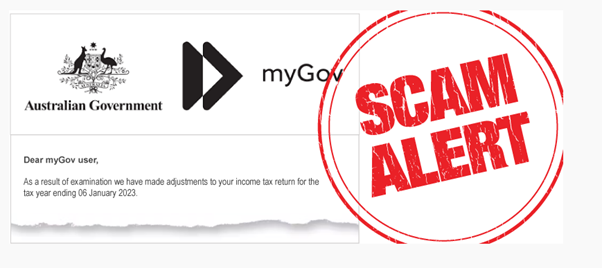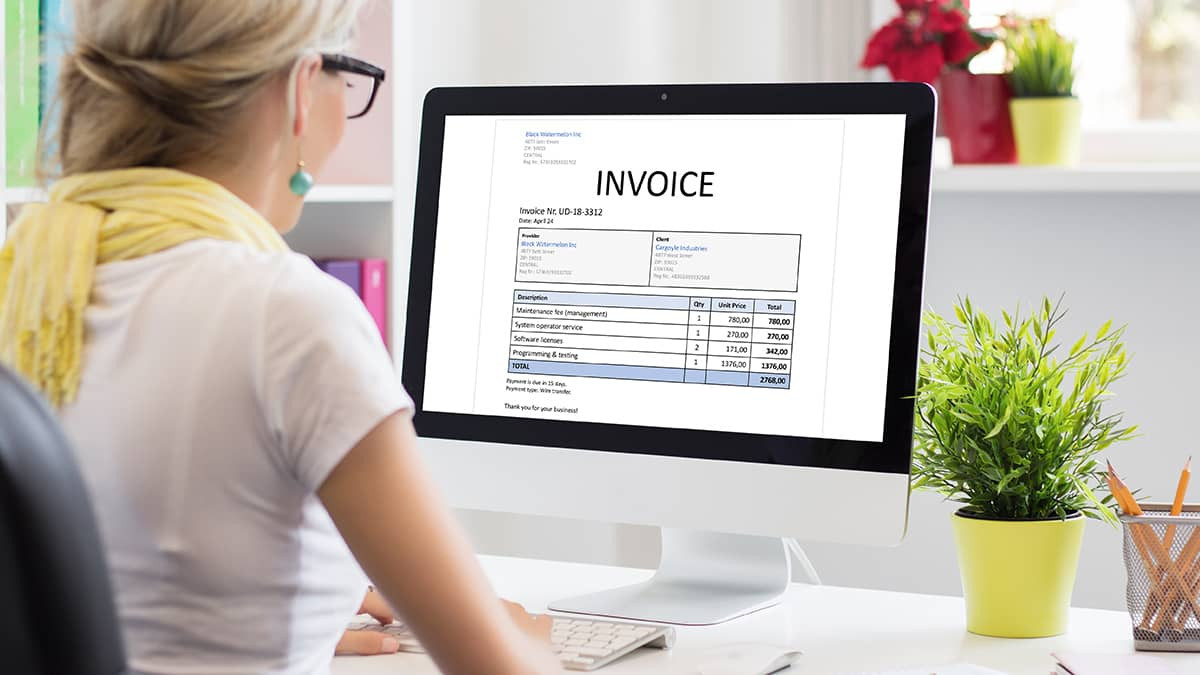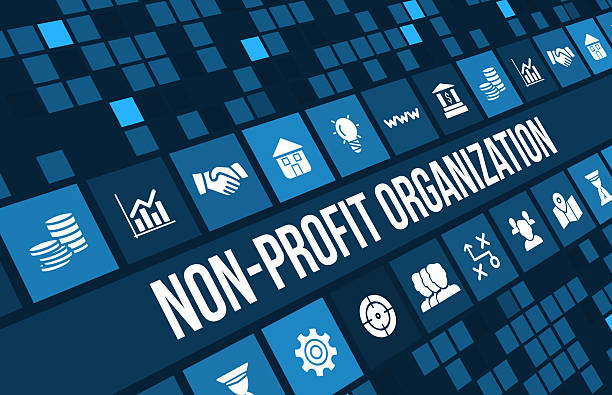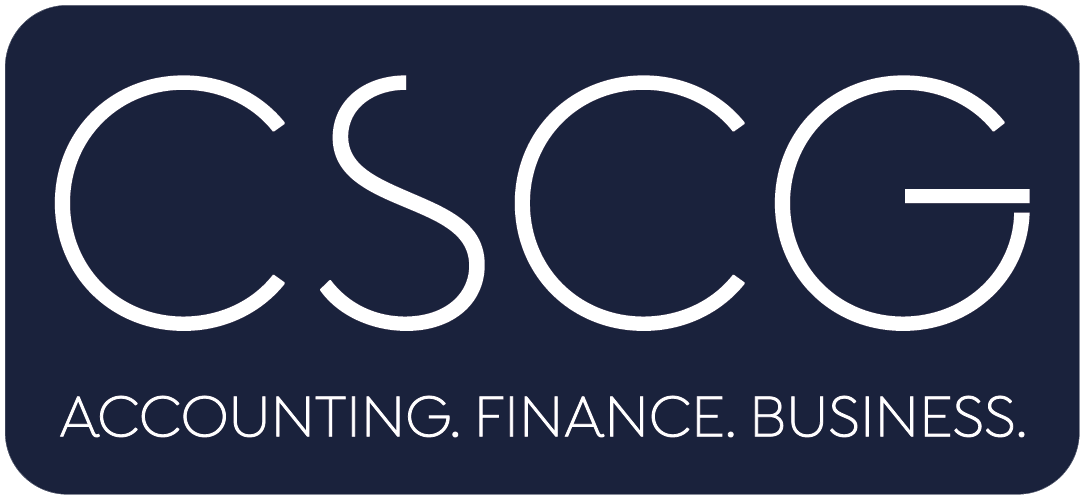Insights & Resources
May Practice Update
Government warns of 'malicious' myGov scammers
The Government has urged Australians to be vigilant regarding scammers who target ATO log-in details to commit tax fraud.
The ATO has received a large number of reports of scammers using fake myGov sites to steal myGov sign-in details, which can be used to commit tax and refund fraud in other people's names.
These criminals will often use text message or email to lure people into clicking a link using phrases such as 'You are due to receive an ATO Direct refund' or 'You have a new message in your myGov inbox - click here to view'.
The Government says the ATO or myGov will never send an email or text message with a link to sign in to myGov.
Last year, the ATO introduced new fraud controls to help protect Australians from online identity theft. This included using myGovID to strengthen security during the sign-in processes on myGov accounts, making it more difficult for criminals to gain access.
What to know about disaster relief payments |
Taxpayers should be aware that some natural disaster relief payments are not taxable.
Businesses that have received a government support payment because of a natural disaster (such as a major weather event) should check if they need to include this as assessable income in their tax return before they lodge (although they may not need to pay tax on the payment).
Provided that they meet the criteria, taxpayers can treat some support payments as 'non-assessable, non-exempt income', which means they do not need to include them in their tax return.
Taxpayers can refer to the ATO's website (or check with us) for more information in this regard, including in relation to the criteria that needs to be satisfied.
Illegal early access to super |
Faced with tough times, some people may be thinking about accessing their super early.
Taxpayers may have been approached by someone (a 'promoter') claiming that members of super funds can withdraw their super or use an SMSF to pay off debts, buy a car, or pay for a holiday.
The ATO warns taxpayers that this is illegal. Super funds should remind members that super is for retirement. Members need to meet very strict conditions to access their super early, and acccessing their super outside of these strict conditions is illegal.
Illegal early access to super can have a significant impact on members' retirement savings, result in additional tax, penalties and interest, and lead to members being disqualified from ever being able to be an SMSF trustee again. When a trustee is disqualified, their name is published and this can affect their personal and professional reputation.
If a promoter gets a member to provide them with enough personal information, they may also steal their identity and use it to access their super for themselves.
ATO issues warning about false invoicing arrangements |
The Serious Financial Crime Taskforce ('SFCT') is warning businesses about using illegal financial arrangements such as 'false invoicing' to cheat the tax and super systems.
False invoicing arrangements may consist of the following:
- an entity (the 'promoter') issues invoices to a legitimate business but no goods or services are provided;
- the business pays the invoices, by cheque or direct transfer, and the promoter returns most of the amount paid to the owners of the business as cash;
- the promoter keeps a small amount as a commission;
- the business then illegally claims deductions and GST input tax credits from the false invoice; and
- the owners of the business use the cash they have received for private purposes or to pay cash wages to workers, and do not properly report the amounts in their tax returns.
The SFCT is warning businesses against using these types of arrangements, and that they "will get caught and face the full force of the law."
NFPs need to get ready for new return |
From 1 July 2024, non-charitable not-for-profits ('NFPs') with an active Australian Business Number ('ABN') will be required to lodge a new annual NFP self-review return with the ATO to confirm their income tax exemption status.
Non-charitable NFPs that have an active ABN can get ready now by:
- conducting an early review of their eligibility by using the 'ATO's guide' on the ATO's website;
- checking all their details are up to date, including authorised associates, contacts and their addresses;
- reviewing their purpose and governing documents to understand the type of NFP they are; and
- setting up myGovID and linking it to the organisation's ABN using 'Relationship Authorisation Manager'.
When it comes time to lodge, NFPs can use Online services for business which lets organisations manage their reporting at a time that is convenient for them. If an NFP has engaged a registered tax agent, their agent can also lodge on their behalf through Online services for agents.
The first return is for the 2023/24 tax year and NFPs will need to prepare and submit their annual self-review between July and October 2024.
As an interim arrangement for the 2023/24 transitional year, eligible NFPs unable to lodge online will be able to submit their NFP self-review return using an interactive voice response phone service.
Taxpayer unsuccessful in having excess contributions reallocated |
The Administrative Appeals Tribunal ('AAT') recently held that a taxpayer was liable to pay excess concessional contributions tax in relation to contributions made on his behalf by his employer.
In the 2021 income year, the taxpayer's employer made concessional super contributions to his super fund totalling $31,737, which resulted in the taxpayer exceeding his concessional contributions cap for the 2021 year by $6,737.
The AAT upheld the ATO's decision not to exercise its discretion to reallocate the excess contributions to another year, on the basis that there were no 'special circumstances' under the relevant legislation that would allow the ATO to do so.
The AAT noted that "The difficulty for the (taxpayer) is that he accepts that there was never any certainty around when his employer would pay contributions into his super fund and that there was no written agreement or even a verbal agreement that set out the timing of the payments into his super fund. As such it was not unusual for his employer to pay the (taxpayer's) concessional contributions into his super fund at differing times."
CSCG TAX MINIMISATION TIPS |
As the Government has finally passed the stage 3 tax cuts albeit in a modified version, it is crucial to plan well ahead and explore some tax planning opportunities to minimise your taxes for the current financial year, ending on 30th June 2024.
Some key tax tips you may wish to consider and discuss with your CSCG tax manager are:
1. Maximise super contributions:
- The concessional cap for this year is $27,500 per individual. Depending on your cash flow circumstances, you may wish to top up your super by making a personal super contribution in addition to the mandatory contributions made by your employer. Remember, the total of your contributions plus your employer's contributions cannot exceed the cap of $27,500.00. Keep in mind that this cap increases to $30,000 from 1st July 2024.
- If your super balance was below $500,000 on 30th June 2023, you can benefit from utilising the carry-forward unused concessional contributions cap amounts in the current financial year. This essentially means that if you have not used up the super concessional cap in the last 5 years, you can top up your super this current financial year in one go. This will be suitable for those clients who have derived large capital gains due to disposal of assets, like holiday homes, shares, etc and wish to reduce the capital gain tax accordingly.
2. Prepayment of interest:
If you or your business has a business or investment loan, consider pre-paying interest on that debt for the next 12 months before 30th June 2024. You will need to make arrangement with your bank well before 30 June if you wish to take up this opportunity. The advantage here is that you maximise your tax deductions this year considering that you will benefit from a reduction in your taxes due to the stage 3 tax cuts effective from 1st July 2024.
3. Maximise Deductions before 30 June 2024:
Ensure you claim every tax deduction available to you. Bring forward future expenses in this current financial year such as repairs and maintenance of your business plant and equipment, motor vehicles, business and investment rental properties, subscriptions, business travel costs, leases and other eligible expenditure items.
4. Delay income collection until after 30th June 2024:
This works well for businesses that report their income on a cash basis. If you invoice say 1st June but collect your payment from your customer on 1st July, then this will be treated as income in the next financial year. For those businesses reporting on accruals basis, delay invoicing until next financial year if it's possible and depending on your business cash flow circumstances.
5. Instant Asset Write-off:
If you are in business with turnover of less than $10 million, you may wish to purchase plant and equipment costing up to $20,000 that is first used or installed ready for use between 1st July 2023 to 30th June 2024.
Please note that this measure in not yet law as it's stuck in the Senate ready to be debated and passed shortly. We understand that there is a possibility of increasing this threshold to $30,000 by the Government. We'll keep all our clients informed of this should it eventuate.
6. Delay Capital Gain Tax event:
If you are selling your investment property or maybe your holiday home soon, consider delaying the sale until after 30th June. Remember, the capital gain tax event occurs when you sign the Contact of Sale, not on settlement date.
Please call our office to speak with your tax adviser well before the current financial ends to give us enough time to consider and implement your tax planning strategies.
When you subscribe to the blog, we will send you an e-mail when there are new updates on the site so you wouldn't miss them.








